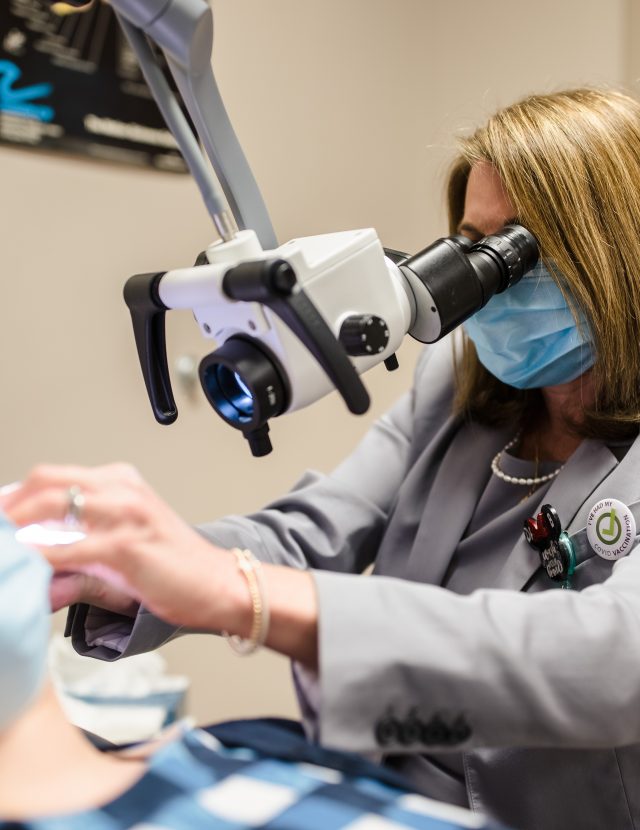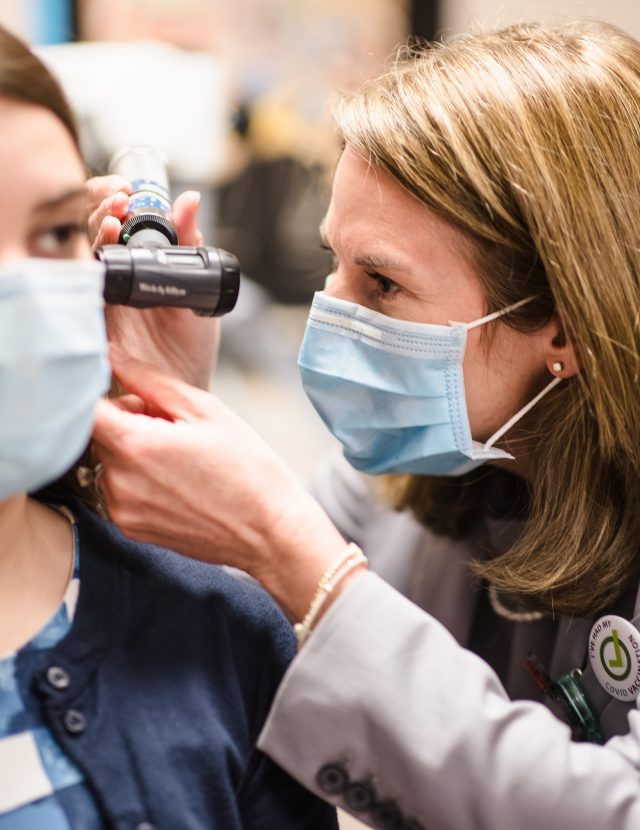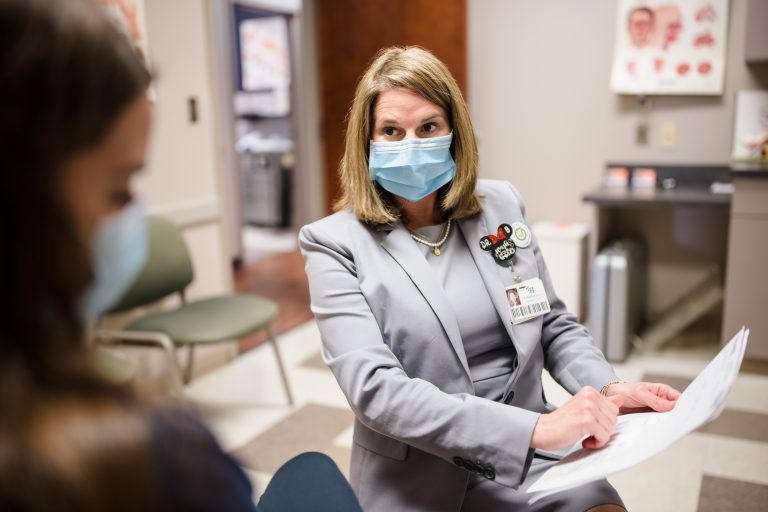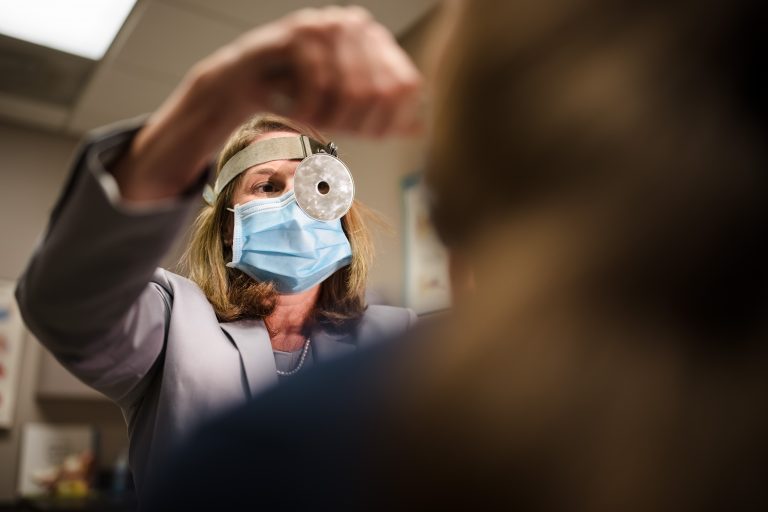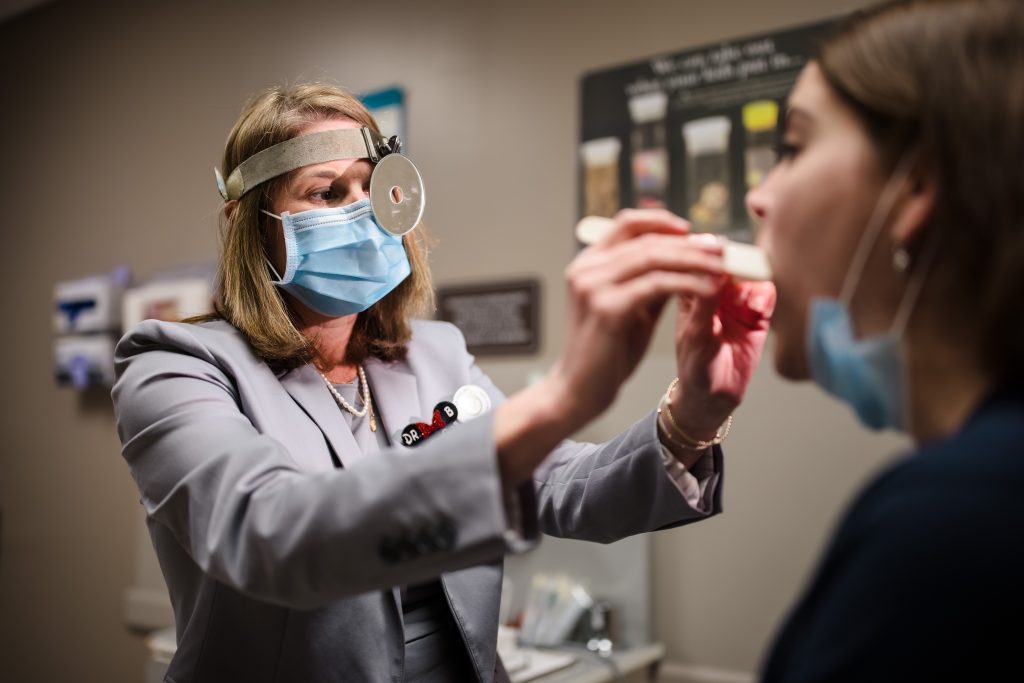
Photos Andy Calvert
Allergies occur when your immune system reacts to substances in the environment (allergens) that are not typically harmful to your body. Common allergens include dust, food, mold, and yes, pollen. Allergy symptoms can include a stuffy nose, itchy nose, throat, and eyes, a skin rash, wheezing, and more.
According to Harbin Clinic Otolaryngologist Dr. Mary Margaret Beauchamp, there are three approaches to allergy care and management: environmental control, medical management, and immunotherapy. Environmental control involves personal steps you can take to prevent allergic reactions. Dr. Beauchamp recommends staying indoors on high-pollen days or showering after you have been outdoors in a high-pollen area. You can also rinse out your nose with a saline rinse.
If environmental control is not enough, there are several over-the-counter medications available for allergy relief. Medications like Flonase and Nasacort are allergy medicines that can help reduce inflammation caused by allergies. Antihistamines like Claritin and Allegra can also provide allergy relief. However, environmental control or over-the-counter medications might not do the trick for those with more severe allergies.
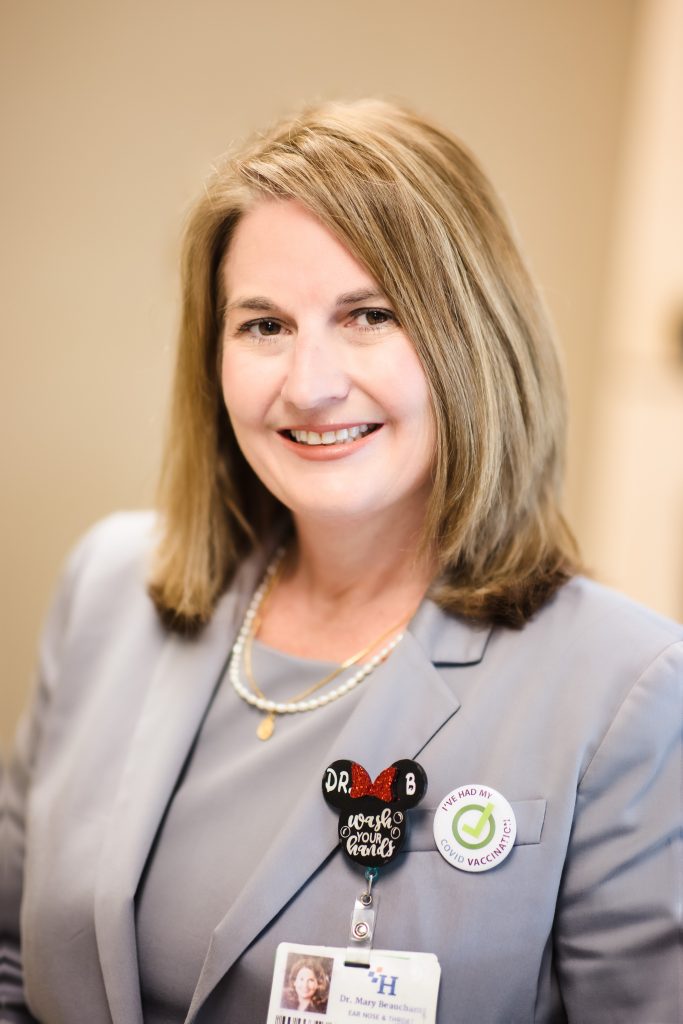
If over-the-counter treatments are not working, Beauchamp says that it might be time to visit a specialist and see about the third course of action: immunotherapy. “If you have found that you’ve tried these over-the-counter medications and they’re not working, or you find that you’re having to be on them for a prolonged period of time, you want to make sure that the symptoms you’re having are allergies and not due to something else, and you want to consider getting allergy tested so that we can do more patient-directed therapy,” she explains. “You can visit us, and we can extend other types of medication, give an allergy test, or consider you for either allergy injections or under-the-tongue drops. What this does is give people low doses of what they’re allergic to, to desensitize their body over three to five years from being so reactive when their allergies are activated.”
Allergy testing can be performed in one of three ways. In some cases, the doctor may tell you to avoid certain items to see if you get better. This method, called elimination testing, is often used to check for food or medication allergies. Another method, called skin testing, is the most common method of allergy testing.
Small amounts of suspected allergy-causing substances are placed on the skin, then the area is pricked slightly so that the substance moves under the skin, and a physician watches for signs of reaction. If a skin test is not an option, blood tests can also be used to measure the antibodies that are produced against certain allergens.
Harbin Ear Nose & Throat (ENT) diagnoses, manages and treats a variety of conditions in addition to allergies. “I often tell my patients that we see everything between the head and the shoulders that’s not the brain or the eyeballs or the spine,” Beauchamp says. This can include thyroid disease, nasal and sinus issues, sleep apnea, hearing issues and chronic ear infections.
Beauchamp explains that the ENT specialty works closely with many other departments at Harbin. This might include working with pulmonary for patients with sleep apnea or chronic coughs, working with gastroenterology for reflux that occurs in the throat, or working with endocrinology for patients with thyroid conditions.
Working in ENT, Beauchamp sees quite a few pediatric patients. “We take care of a lot of younger patients in this community,” she says. We see them for snoring or chronic sore throats, which are usually due to tonsils. Kids who keep seeing their pediatricians for ear infections may need surgical management of their ears. We also see foreign bodies — kids who stick things in their nose or their ear.”
In addition to a wide range of medical diagnoses and treatments, ENT is also responsible for many surgical procedures in the head and neck area, including reconstructive surgeries for facial trauma. ENT maintains its close relationship with other specialties at Harbin in the surgical area. Beauchamp says she might work with a vascular surgeon for a patient with a neck tumor, or with a neurosurgeon because some approaches to the brain require going through the nose. Overall, ENT is a very collaborative specialty, which lends itself perfectly to Harbin Clinic’s philosophy of caring completely. This is an approach that Beauchamp has also adopted with her own patients.
“I often tell my patients that I treat them as if they are one of my family or friends, and I try and take care of each patient individually as a person and care for the entire patient, extending the philosophy of caring completely that we promote here at Harbin Clinic,” Beauchamp says. Beauchamp has been serving at Harbin Clinic for 15 years, and she describes it as a joy. “I feel like it’s an honor to care for others, sometimes when they’re in their most vulnerable state, and I really think it’s a privilege to make a difference.”
Dr. Beauchamp works alongside two board-certified Otolaryngologists, Dr. Robert King and Dr. Brandon Miller. For more information, visit harbinclinic.com/ear-nose-throat



